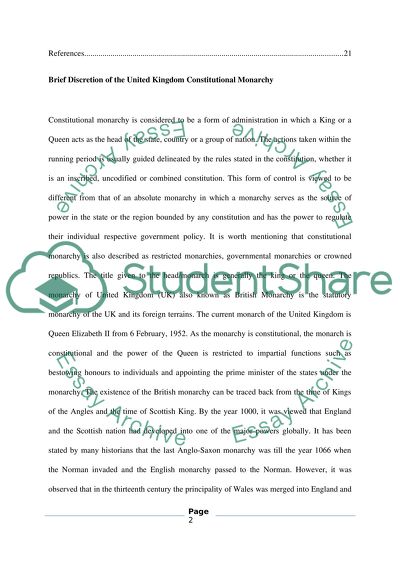Cite this document
(“The Constitutional Monarchy in the UK Taking Into Account: Monarch Essay”, n.d.)
The Constitutional Monarchy in the UK Taking Into Account: Monarch Essay. Retrieved from https://studentshare.org/law/1498821-the-constitutional-monarchy-in-the-uk-taking-into-account-monarch-role-royal-prerogative-royal-immunity-rule-of-law-and-separation-of-powers
The Constitutional Monarchy in the UK Taking Into Account: Monarch Essay. Retrieved from https://studentshare.org/law/1498821-the-constitutional-monarchy-in-the-uk-taking-into-account-monarch-role-royal-prerogative-royal-immunity-rule-of-law-and-separation-of-powers
(The Constitutional Monarchy in the UK Taking Into Account: Monarch Essay)
The Constitutional Monarchy in the UK Taking Into Account: Monarch Essay. https://studentshare.org/law/1498821-the-constitutional-monarchy-in-the-uk-taking-into-account-monarch-role-royal-prerogative-royal-immunity-rule-of-law-and-separation-of-powers.
The Constitutional Monarchy in the UK Taking Into Account: Monarch Essay. https://studentshare.org/law/1498821-the-constitutional-monarchy-in-the-uk-taking-into-account-monarch-role-royal-prerogative-royal-immunity-rule-of-law-and-separation-of-powers.
“The Constitutional Monarchy in the UK Taking Into Account: Monarch Essay”, n.d. https://studentshare.org/law/1498821-the-constitutional-monarchy-in-the-uk-taking-into-account-monarch-role-royal-prerogative-royal-immunity-rule-of-law-and-separation-of-powers.


